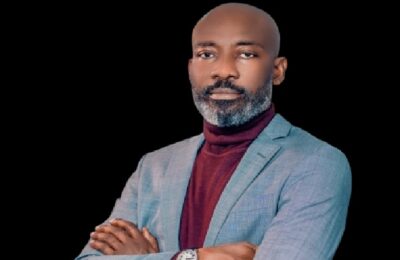The tragedy of contemporary Igala politics is not located in the resilience of external adversaries but in the lethargy, apathy, and disinterest of the Igala people themselves—both those domiciled at home and those dispersed across the diaspora. At a historical juncture when collective resolve and the doctrine of necessity ought to be invoked as a salvaging principle, the Igala nation has chosen instead the path of aloofness and insularity. A kingdom that once spoke with one voice, now resonates with many tongues. A people once defined by fraternity now operate as isolated islands of self-interest.
The doctrine of necessity, which in political philosophy signifies the deliberate suspension of conventional boundaries in order to salvage a polity at the brink of collapse, has been the lifeline of nations and kingdoms in crisis. Nigeria herself survived moments of constitutional vacuum by leaning upon this pragmatic philosophy. Yet, within the Igala nation, this doctrine is conspicuously absent. There is no evidence of such higher reasoning in the conduct of our elite or the disposition of our commonfolk. Where urgency and necessity should compel unity, inertia and suspicion have become our portion.
If Igala families at home and abroad cannot reconcile their immediate differences—if brothers and sisters refuse to strengthen sisters, brothers, if uncles cannot host nephews without suspicion, if diaspora sons and daughters cannot extend consistent succour to parents in the village—then by what logic shall we imagine a broader national unity? Can a people who will not unite around their household fire ever hope to invite their neighbours to share palm wine by the moonlight at dawn? The answer is written in the proverbs of our land: _“Enene gwu gwu unyi nwu ali ochu”—everyone now sits in his own house to behold the moon. The very metaphor of togetherness that once animated our culture has been replaced by isolationism.
My late father spoke often of the communal splendour of Igala tradition: waking as early as 4 am to lite lantern and rush to work on a brother or friends farm before dressing for school or is it nights under the moon when elders told stories of warriors and kings, weaving wisdom into the hearts of attentive children. Those gatherings were not mere entertainment; they were the architecture of unity, the cement of love, the covenant of brotherhood. Today, those fires are extinguished. I speak as one who has tasted the bitterness of this decline—having once been treated with mistrust in the very place where, in former years, a plate of food and a cup of water would have been given without question. Love, that sacred bond, has fled from the land, and where love departs, necessity cannot dwell.
Professor I. Omale once warned with piercing clarity: “A people are not destroyed primarily by foreign invasion but by the corrosion of internal trust.” His words reverbrates in the current Igala experience. Both at home and in the diaspora, the Igala have lost the ethic of collective responsibility. The diaspora, enamoured with the luxuries of foreign lands, sends home little more than rhetoric. The home front, sunk in rivalries, refuses reconciliation. Thus, the political space once dominated by the Igala voice now treats them as spectators, beggars in a theatre where they once commanded the stage. I am not saying some are not trying but we need more good souls to rise.
The lamentation of Prophet Isaiah about the ruins long devastated finds haunting relevance here. The ancient foundations of Igala greatness now lie desolate, awaiting repair. Pastor Inah Stephen Eyiene has often insisted: “Unity is not the gift of chance but the labour of deliberate love.” Yet, Igala society has chosen the easy path of fragmentation. The elder who maligns his brother, the youth who envies his cousin, the politician who prefers crumbs to destiny, the diaspora son who forgets his roots—all have contributed to this dirge. The indictment is collective.
Without love, there can be no doctrine of necessity. Without necessity, there can be no revival. To recover her destiny, Igalaland must resuscitate the ethic of genuine love: brothers must once again pray for brothers; sisters must intercede for sisters; families must support each other without suspicion; the diaspora must remember that responsibility to the homeland is not charity but obligation. The Igala must learn anew that “when brothers unite, they can lift a mountain, but when they scatter, even an ant can undo them.”
The truth is stark: unless love is revived, the Igala nation shall continue her tragic descent into irrelevance. But should love be rekindled, the doctrine of necessity will be reborn, and the sons and daughters of Igalaland will rise again—not as fragmented exiles, but as one people, one destiny, one kingdom.
– Inah Boniface Ocholi writes from Ayah – Igalamela/Odolu LGA, Kogi state.
08152094428 (SMS Only)




